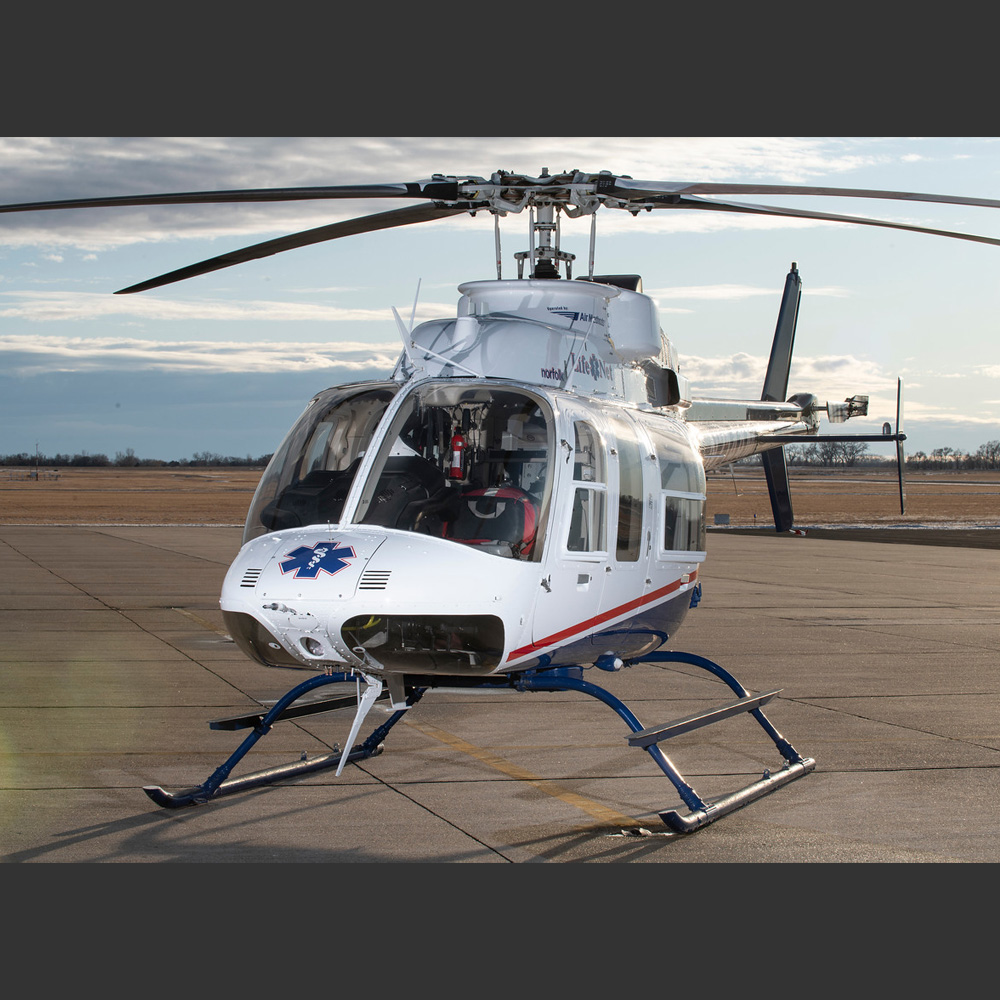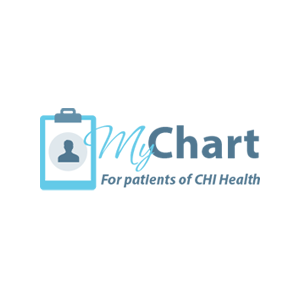Air Methods
In a life-saving situation, minutes, even seconds, matter. And when seconds count, emergency air medical transport is the only choice for saving a life. Air Methods, an emergency medical transport company, delivers lifesaving care to more than 100,000 patients a year, with over 300 bases in 48 states. Locally, Air Methods operates its’ LifeNet bases in Omaha, Fremont, Norfolk and Star Care in Lincoln. In 2019, the total number of LifeNet flights to Blair was 33, up from 29 in 2018. Between 250 and 300 flights are dispatched from each base annually.
Memorial Community Hospital and Health System partners with Air Methods to provide emergency and lifesaving services to the communities it serves. As a rural community, this is a vital service as many hospitals equipped to handle severe trauma are located miles away. The national criteria for a trauma injury includes accidents that involve a fall of over 25 feet, head on collision, ejection from a vehicle, and a motorcycle accident. In most of these situations immediate action is necessary and patient condition can deteriorate quickly if they do not receive lifesaving care.
This partnership, however, goes beyond emergency air medical transport. Air Methods is not just an air transport service whose association is solely with the hospital. They are a community based flight service with a strong desire to educate the community and collaborate with the hospital and staff as an educational partner. AirMethods’ staff participates at the hospital with staff in annual drills, competency fairs, and offers assistance throughout the year. They also work with local EMS groups. Each base has an outreach coordinator whose responsibility is to communicate with Emergency Departments to make sure they have the training they need. “They are a great extra set of hands when we transfer critical patients by air transport”, said Keala Roy, Emergency Department Lead and Trauma Coordiantor at Memorial Community Hospital and Health System. “Their flight team goes through extensive training every year which is very helpful during critical situations. I truly appreciate their expertise and willingness to come provide education and training for our facility and local EMS agencies.”
In the past, emergency air medical transport companies such as Air Methods have developed a bad reputation for excessive fees for their services, with some patients ending up with bills in the $40,000-$50,000 range. In recent years , Air Methods evolved their billing philosophy and found a solution which protected patients and families from being hit with extreme charges that would take years to pay off. Air Methods went away from their previous practice of offering pre-paid memberships to protect individuals from the potential costs of air medical transports and began working to go In Network with insurance companies which would make this service much more affordable to the patient if it was ever needed. Air Methods and its’ emergency air medical transport service is now included in services covered by insurance companies such as Blue Cross Blue Shield , and they are the only medical air transport company to be In Network.
In addition to being recognized as an In Network service, Air Methods also developed a patient advocacy program, devoted to working with patients throughout the whole billing process. The group does everything it can to relieve the stress on patients and their families by focusing on taking patients out of the middle, so that they can focus on their recovery. Air Methods is proud of the work they have done which has been geared to helping those they’ve offered assistance to, and their efforts have made a huge impact on those they have served. On average, patients in Nebraska who have flown with Air Methods have paid $176 out of pocket for the emergency air transport. And if the transport of a patient does not occur, even after the helicopter has been dispatched and is in flight, there is no bill.
Kevin Hallam, Business Development Manager from Air Methods explains, “We sincerely hope you never need to utilize our services, but if you or a loved one experiences a medical emergency, our flight staff, including a pilot, nurse and medic, are ready to provide in-air lifesaving services while transporting you to a higher level critical care facility at the fastest possible speed and lowest possible cost.”
Beginning late March of this year, Air Methods began carrying blood and plasma, adding to the life-saving measures they take to care for their patients. Coolers with blood and plasma are prepared and ready to go at all of the bases. In addition, Air Methods is one of the few air ambulance companies in the world which has approved the transport of COVIC-19 patients.
Air Methods has also developed technology which enables Emergency Departments to dispatch their helicopters as quickly as possible, saving minutes and seconds which can save additional lives. When in a trauma situation, staff in the Emergency Department call for assistance by using a special button devise referred to as the “Easy Button.” When this emergency button is pressed, a call goes to the National Aircom Center, headquartered in Omaha near Eppley Airfield. Officials there look for the Air Methods helicopter that can reach the patient the quickest and dispatch accordingly from one of the nearby bases.
Though Air Methods has become a good partner of MCH&HS, they are not the only medical air transport company MCH&HS uses in trauma situations. Midwest Medical Transport also provides emergency air medical transport services and is also used for transport in the area, however, their transport services may not bill in the same manner as Air Methods does.
Everyone deserves access to lifesaving treatment and when seconds count, emergency air medical transport is often the only choice for saving a life. Rural areas are fortunate these services are available from companies like Air Methods who are prepared and life 24/7.







